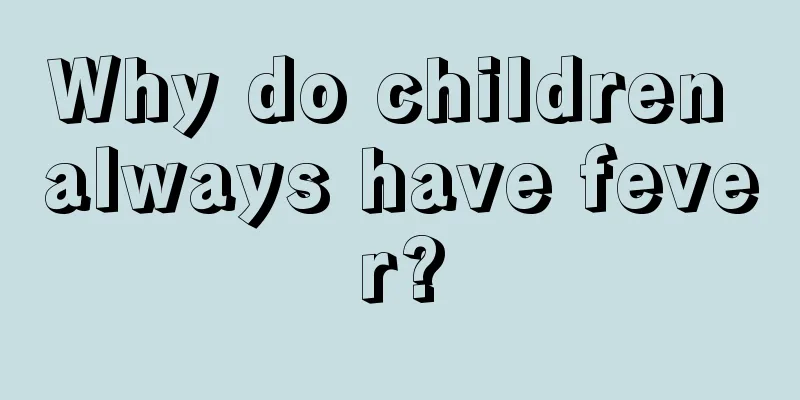Why do children always have fever?

|
In life, we will find that many children always have fever, and the fever recurs repeatedly. This is because there is inflammation in the body and the immune system has not yet recovered, so the symptoms of fever appear. Frequent fever is mainly caused by bacterial infection and viral invasion, which leads to fever. Repeated fever requires attention to adjustment in normal times, and choose appropriate methods to slowly reduce the fever. Why do children have repeated fevers? Because children have poor ability to adapt to the external environment and their immune systems are not yet fully developed, any discomfort can easily lead to fever symptoms, or their body temperature may rise again quickly after taking medicine to reduce the fever. Especially in the hot summer, if parents use the air conditioner improperly or the baby drinks less water and cannot adapt to the high temperature weather, it will cause repeated fever. There are many causes of fever: mainly bacterial and viral invasion, which cause respiratory and gastrointestinal infections and lead to fever. What parents can do is to provide adequate nutrition according to the child's age and physical development, and add complementary foods in a timely, reasonable and balanced manner. Parents should be especially reminded that if their child has a fever for more than three consecutive days without improvement or if the baby has a high fever or convulsions, they should seek medical attention in time to identify the cause and provide symptomatic treatment. What to do if your child has repeated fever What should I do if my child has a fever? Generally, if a child's fever is below 38.5℃, parents should adopt physical cooling methods, such as drinking more water, using fever-reducing patches, etc., and do not abuse drugs. When a child's fever is above 38.5℃, it is best to give the child medication under the guidance of a doctor. 1. When the body temperature is below 38.5℃, physical cooling is the preferred intervention. Fever is the most common symptom of infectious diseases in children. The treatment of fever can be roughly divided into "physical treatment" and "drug treatment". Generally speaking, when a child's body temperature is below 38°C, there is no need to use drug treatment, but choose the correct physical cooling method. For example, applying a fever-reducing patch, drinking plenty of water, and taking a warm bath can all help lower body temperature. 2. Infants and young children with a body temperature above 38.5°C need drug treatment. If you find that your child's body temperature has exceeded 38.5℃, parents should closely observe the child's condition so as to respond in time. For infants and young children, when their body temperature exceeds 38.5℃, they need to be given medication. 3. If the body temperature is above 39°C, medication should be taken under the guidance of a doctor. When a child's body temperature exceeds 39°C and is considered a high fever, Western medicine treatment is usually chosen. Currently, ibuprofen and paracetamol are commonly used antipyretics in clinical practice. These two types of drugs are relatively safe. But one thing that must be made clear is that parents should use the medication under the guidance of a doctor, especially pay attention to the dosage, and send the baby to the hospital for treatment in time. |
<<: My child keeps coughing at night
>>: How to turn the foreskin of a child
Recommend
What medicine should I take when my baby has a fever?
Because babies' immune systems are not fully ...
What are the little red spots on my child's face?
We know that babies' skin is the most delicat...
What to do if your child has no memory
It is a common problem that children have poor me...
What anti-inflammatory drugs do children take?
The cold winter weather is quite cold. Even if yo...
What are some ways for children to grow taller quickly?
I believe that everyone agrees with this truth in...
At what age do babies start to recognize people?
Most of the new parents hope that their babies ca...
Why does the child cry in the middle of the night?
We know that children can only grow up healthily ...
Why does a child vomit in the middle of the night?
There are many common diseases in children. When ...
How to train children's attention
Many people have difficulty concentrating, and pa...
What to do if your 11-month-old baby is restless at night
The physical health of the baby is an issue that ...
What are the reasons for babies' short sleep time?
The baby's physical health is what parents ca...
What to do if a child dislocates his arm?
Many families are still worried when they see the...
6-year-old has arm pain after vaccination
After giving babies vaccinations, some adverse sy...
What medicine should children take for autumn diarrhea?
Do you know why there are a lot of stomach and in...
What to do if your baby burps after feeding
Hiccups are actually a very normal phenomenon, bu...









